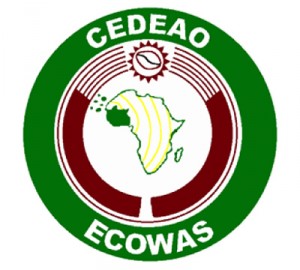Ghana hosts ECOWAS food security workshop
 A regional workshop on social safety nets for food security and nutrition in West Africa is being hosted in Ghana to enable delegates from participating countries to build their capacities on food security measures.
A regional workshop on social safety nets for food security and nutrition in West Africa is being hosted in Ghana to enable delegates from participating countries to build their capacities on food security measures.
Dubbed, the “Training of Trainers Workshop for Potential Projects Backers on Social Safety Nets for Food Security and Nutrition in West Africa”, the four-day meeting would allow national actors in ECOWAS member states to have a common understanding of the concept of social safety nets.
The workshop would also train potential project backers on the instruments commonly used in the design and implementation of social safety net projects as well as allow national actors of ECOWAS member states to formulate and implement projects of social safety nets.
Thirty delegates made up of potential project backers: local and international NGOs, producer organizations, and state actors, from 15 ECOWAS countries including Ghana, Nigeria, Sierra Leone, the Gambia, Guinea, Guinea Bissau, Burkina Faso, Mali and Niger are participating.
Mr Usseini Salifu, Executive Director of Regional Agency for Agriculture and Food (RAAF-ARAA), said social protection is related to food security and nutrition but several countries within the sub-region do not have significant experience in the implementation of projects and programmes related to social safety nets in line with a national social protection strategy.
He said the countries, however, have obligation to implement the ECOWAS regional agricultural policy (ECOWAP), which is also benefitting from the support of the Spanish International Cooperation Agency for Development (AECID) to finance innovations on the ground projects in the area of safety nets for food security.
“This is, among others, the reason why in 2012, ECOWAS initiated a Regional Programme of Support to the National Social Security Nets in West Africa. This programme promotes preventive social safety net programmes which involves predictable and enrolled in the duration of interventions targeting people on the basis of vulnerability rather than on the basis of exposure to a shock. This is in opposition to reactive safety nets which aims at responding to shocks and crises”.
Mr Salifu said the selection of projects backers was done through a call for proposals managed by the RAAF/ECOWAS and that through a first call for proposals launched in January 2015, ten projects on social safety nets have been selected for an aggregate grant amount of $2,146,789, adding that a second call for proposal would be launched by the end of 2016.
He said it is expected that at the end of the training, the concept of social safety nets would be understood by all while the instruments of social safety nets, the conditions for their use; as well as a network of national actors would be established for the capitalization of projects on social safety net programmes.
Participants are also expected to contribute to the validation of the study entitled: “Support for the design of a regional framework of exchange on social safety nets in West Africa.”
Mr Berhanu Bedane, Country Representative of Food and Agricultural Organisation, expressed the hope that participants would be provided tools, approaches and practical methods allowing them to make good projects proposals on safety nets and to implement them with the most appropriate teams in the countries.
In a speech read on his behalf, Alhaji Mohammed Muniru Limuna, the Minister of Food and Agriculture, said agricultural remains critical for rural development and associated cultural values, social stabilisation, environmental sustainability and serves as a buffer, during economic shocks.
He said in recent years, social protection has increasingly been seen as an approach that allows one to fight more effectively against food and nutrition insecurity, however, many countries lack the experience in the implementation of projects and programmes related to social safety net in line with food security.
He expressed the hope that through the workshop, the region would make great strides in the agricultural sector especially in improving the lot of vulnerable populations.
“This is the only way West Africa will generate knowledge and bring development to our hard-working populations as well as sustaining the vulnerable in our societies”, the Minister said.
Source: GNA
